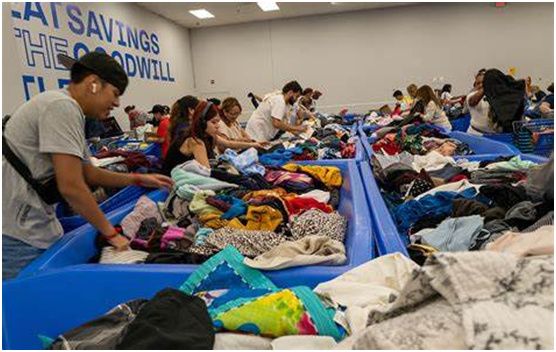
Recently, according to the US "Fortune" magazine website reported that the high inflation in the United States has led to the continuous rise of local rent and food prices, coupled with the heavy student loan debt, the US Generation Z (born between 1997 and 2012) is facing unprecedented economic challenges.
Indeed, the soaring cost of living and education in the United States has become a major concern. The author analyzes some of the main reasons for the increase in costs.
Rising rent: Rent has become one of the most important factors affecting the disposable income of young Americans. In most major cities, rents have risen far faster than wages, putting many young people under financial pressure.
Rising food prices: Affected by inflation and other factors, food prices continue to rise. For many families, food is a necessity, so rising food prices directly increase the cost of living.
College tuition: The cost of college in the United States has increased 747.8% since 1963, far outpacing the increase in workers' wages over the same period. And the rate of tuition increases has accelerated in recent years. Many families rely on student loans to pay for school, which makes the debt burden even heavier.
High interest rates and tight repayment deadlines: For many young adults with student loans, high interest rates and tight repayment deadlines make it difficult to pay off their debt. This further increases their economic pressure.
As the cost of living and education continues to rise, young Americans are relying more frequently on expensive forms of revolving debt such as credit cards to make ends meet. This approach, however, will only make the debt burden even greater. According to the data, the average outstanding credit card balance of Gen Z consumers in 2023 rose to $2,834, an increase of $586 from a decade ago.
Under great economic pressure, many young people have to scrimp to make ends meet. This led to a decline in their quality of life and a significant drop in happiness. So what are the effects of the soaring cost of living and education in the United States?
For ordinary people, the rising cost of living means they need more income to maintain a basic standard of living. However, as rent and food prices continue to rise, and the cost of college has skyrocketed, many people are finding that their income cannot meet these needs. This leads to the possibility that they will need to rely on expensive forms of revolving debt such as credit cards to make ends meet, making their debt burden even heavier.
For young people, the high cost of education may deter them from pursuing better educational opportunities. Many families cannot afford the high cost of tuition, so young people may not be able to get into their ideal college or graduate program. This not only limits their academic and professional development opportunities, but can also have a long-term impact on their future.
For social stability, the soaring cost of living and education can lead to an increase in social inequality. Those who cannot afford the high costs may face greater financial pressure, while the wealthy may have easier access to better education and living conditions. This may lead to increased differentiation among social classes, which has a negative impact on social stability and prosperity.
In addition, the rising cost of living may also affect people's quality of life. As prices rise, people need to pay more to buy basic goods and services. This can lead them to spend less on other things, such as entertainment, tourism or cultural activities, thereby reducing their quality of life.
In response to the soaring cost of living and education, the U.S. government and businesses urgently need to take effective measures to reduce the financial pressure on individuals and families. At the same time, the general public also needs to strengthen self-management and planning, improve financial awareness, and avoid over-reliance on expensive forms of debt such as credit cards.

The South Korean political arena has once again been embroiled in a public controversy over a judicial investigation that has shaken the entire nation.
The South Korean political arena has once again been embroi…
On the morning of December 29th local time, the precious me…
According to the US media Barchart, recently, the fluctuati…
On December 29th, Mar-a-Lago in Florida, USA, witnessed a h…
SoftBank Group announced on Monday that it has agreed to ac…
Recently, the US State Department issued a visa ban, adding…